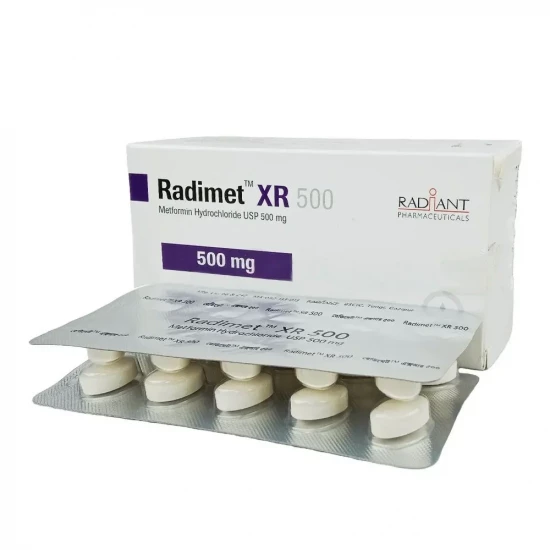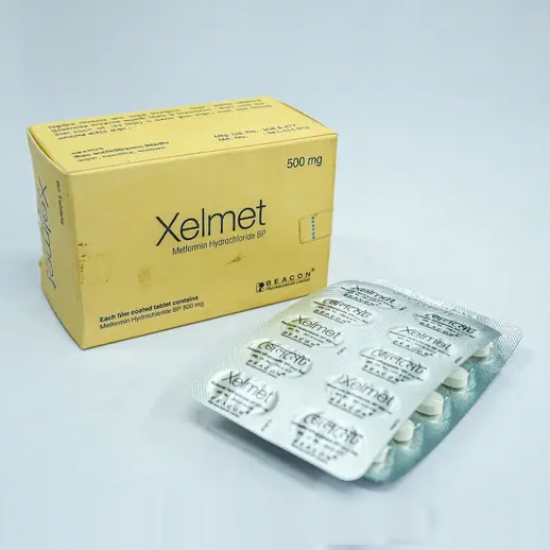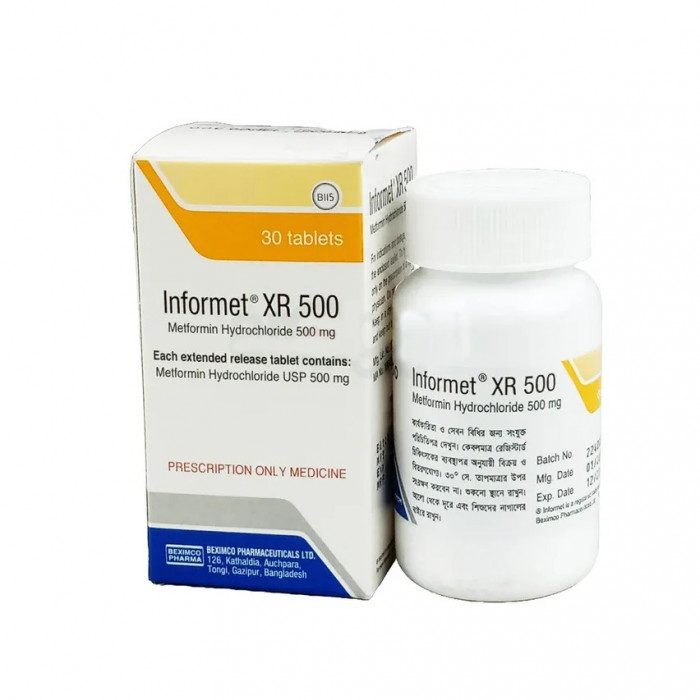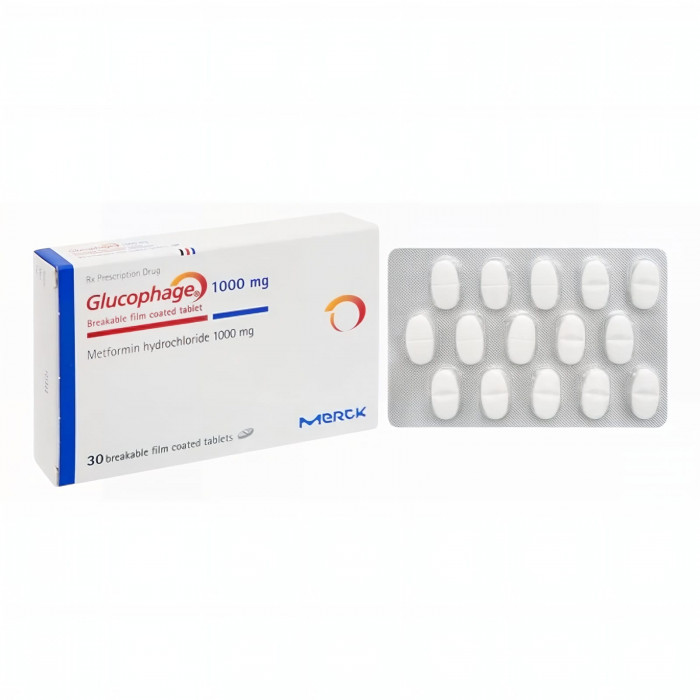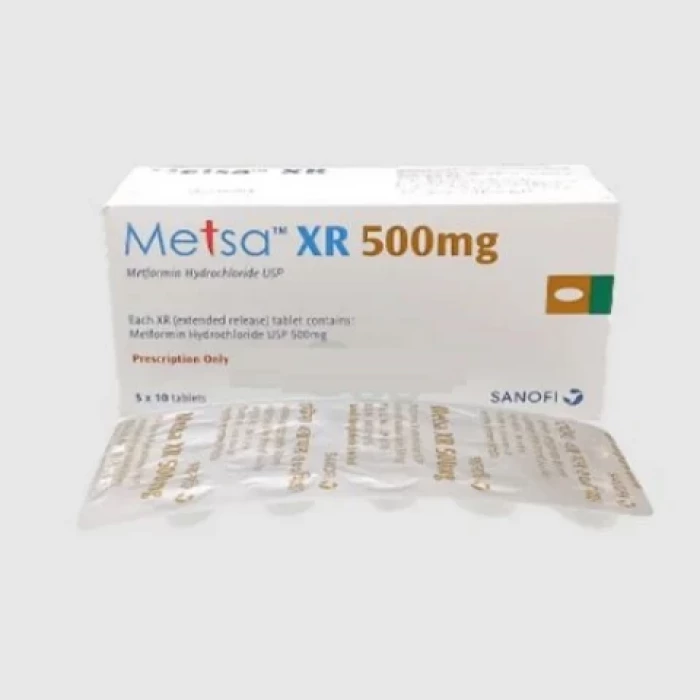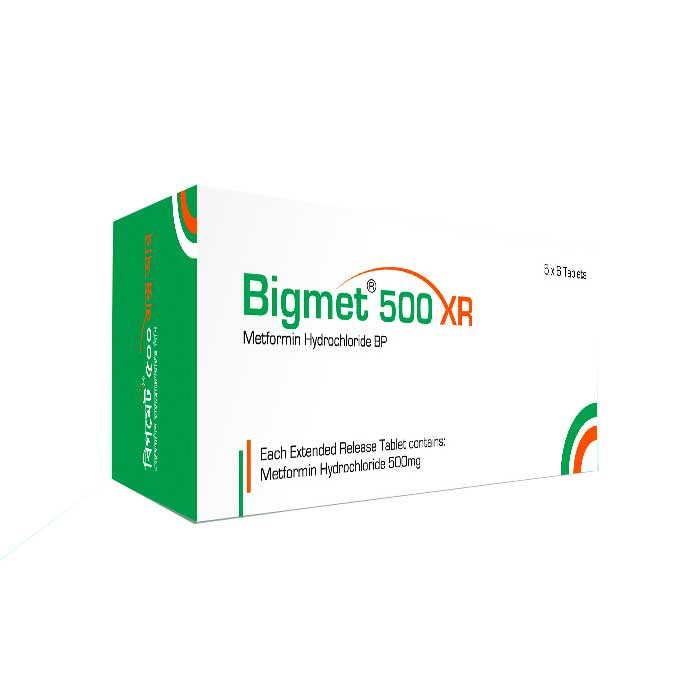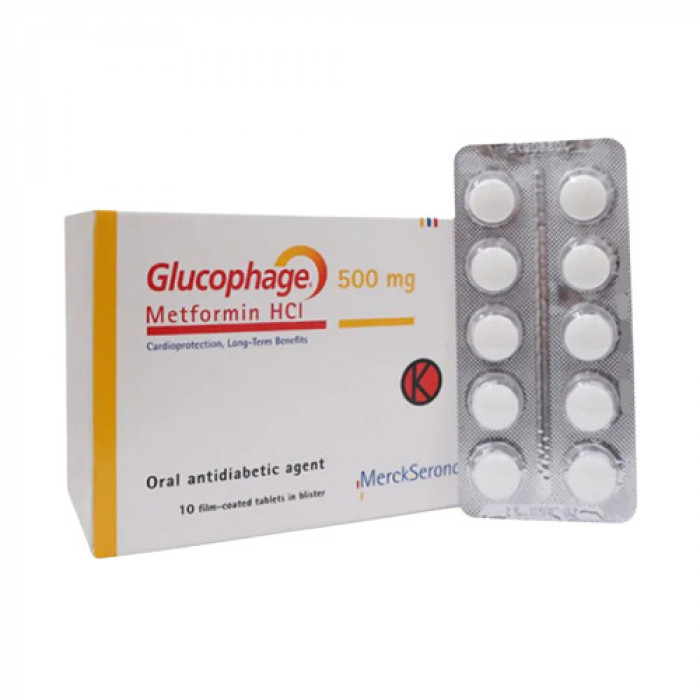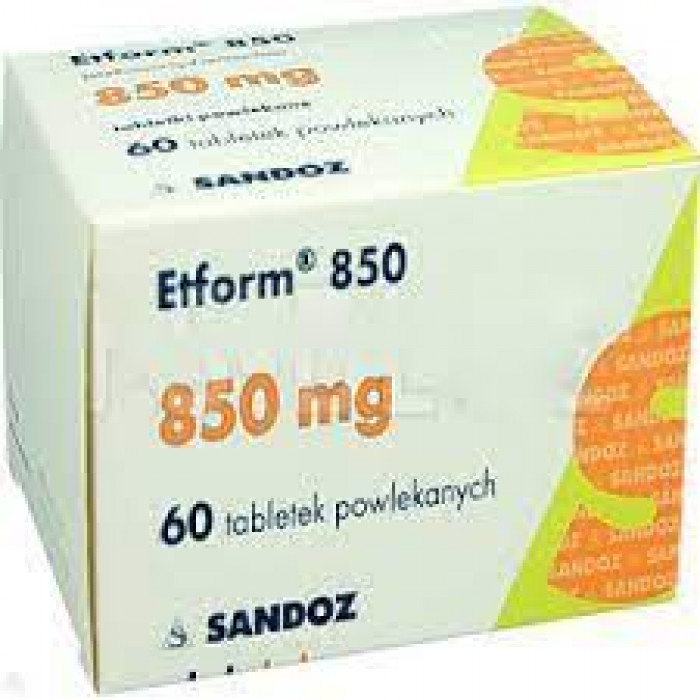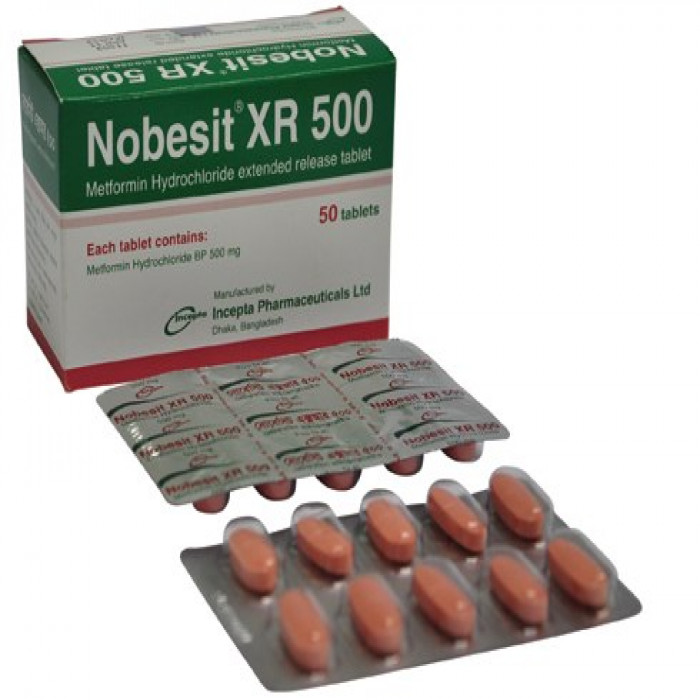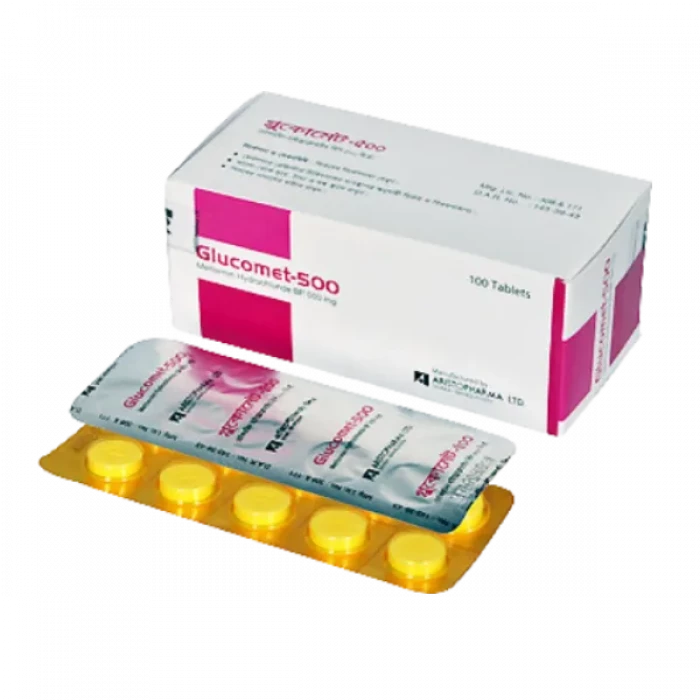
✔ 100% Authentic Product
👁️ Currently Viewing 2034
Glucomet 500mg 10pcs
Generic Name: Metformin Hydrochloride 500mg
Manufacturer/Distributor: Aristopharma Ltd.
Discount
Price: ৳ 38
MRP:
৳
40
5%
Off

100% Genuine Products, Guaranteed

Safe & Secure Payments, Always

Fast, Secure & Efficient Delivery

Proper Packaging
 Cash on Delivery - All over Bangladesh
Cash on Delivery - All over Bangladesh Regular Delivery - 12-24 Hours, Dhaka City* Charge Tk.39-59
Regular Delivery - 12-24 Hours, Dhaka City* Charge Tk.39-59 Regular Delivery - 24-48 Hours, Other Cities* Charge Tk.99-110
Regular Delivery - 24-48 Hours, Other Cities* Charge Tk.99-110
🌙 রমযান অফার 🌙
 ফ্রি ডেলিভারিঃ - ৭৯৯ টাকা+ অর্ডারে, ঢাকা
শহরে
ফ্রি ডেলিভারিঃ - ৭৯৯ টাকা+ অর্ডারে, ঢাকা
শহরে ফ্রি ডেলিভারিঃ - ২৭৯৯ টাকা+ অর্ডারে, ঢাকার
বাহিরে
ফ্রি ডেলিভারিঃ - ২৭৯৯ টাকা+ অর্ডারে, ঢাকার
বাহিরে
📲 মোবাইল অ্যাপ অর্ডারে সাশ্রয় বেশী
-
Google Play Store থেকে ডাউনলোড
-
Apple Store থেকে ডাউনলোড
100% Genuine Products, Guaranteed
Safe & Secure Payments, Always
Fast, Secure & Efficient Delivery
Proper Packaging
 Cash on Delivery - All over Bangladesh
Cash on Delivery - All over Bangladesh Regular Delivery - 12-24 Hours, Dhaka City* Charge Tk.39-59
Regular Delivery - 12-24 Hours, Dhaka City* Charge Tk.39-59 Regular Delivery - 24-48 Hours, Other Cities* Charge Tk.99-110
Regular Delivery - 24-48 Hours, Other Cities* Charge Tk.99-110 ফ্রি ডেলিভারিঃ - ৭৯৯ টাকা+ অর্ডারে, ঢাকা
শহরে
ফ্রি ডেলিভারিঃ - ৭৯৯ টাকা+ অর্ডারে, ঢাকা
শহরে ফ্রি ডেলিভারিঃ - ২৭৯৯ টাকা+ অর্ডারে, ঢাকার
বাহিরে
ফ্রি ডেলিভারিঃ - ২৭৯৯ টাকা+ অর্ডারে, ঢাকার
বাহিরে- Google Play Store থেকে ডাউনলোড
- Apple Store থেকে ডাউনলোড
🌙 রমযান অফার 🌙
📲 মোবাইল অ্যাপ অর্ডারে সাশ্রয় বেশী
✅ Description:
Indications
A medication called Glucomet 500 is used to treat type 2 diabetes mellitus. It aids in blood sugar regulation and averts major diabetic problems as a result. Additionally, it is used to treat the polycystic ovarian syndrome (PCOS) that affects women and is associated to menstruation.
Treatment of type 2 diabetes mellitus, particularly in overweight patients when dietary management and exercise alone do not result in adequate glycemic control.
In adults: Metformin may be used as monotherapy or in combination with other oral antidiabetic agents or with insulin.
In children from 10 years of age and adolescents: Metformin may be used as monotherapy or in combination with insulin.
A reduction of diabetic complications has been shown in overweight type 2 diabetic adult patients treated with metformin as first-line therapy after diet failure.
Pharmacology
Metformin could be a biguanide sort of verbal antihyperglycemic medication utilized within the administration of sort 2 diabetes. It brings down both basal and postprandial plasma glucose. Its instrument of activity is distinctive from those of sulfonylureas and it does not create hypoglycemia. Metformin diminishes hepatic glucose generation, diminishes intestinal assimilation of glucose, and makes strides affront affectability by an increment in fringe glucose take-up and utilization.
Dosage & Administration
Metformin immediate-release tablet: The dosage of Metformin Hydrochloride must be individualized on the basis of both effectiveness and tolerance, while not exceeding the maximum recommended daily doses.
Adult: The usual starting dose of Metformin is 500 mg twice a day or 850 mg once a day, given with meals. Dosage increases should be made in increments of 500 mg weekly or 850 mg every 2 weeks, up to a total of 2000 mg per day, given in divided doses. For those patients requiring additional glycemic control, Glucomin may be given at a maximum daily dose of 2550 mg per day. Doses above 2000 mg may be better tolerated given three times a day with meals.
Children: The usual starting dose of Metformin is 500 mg twice a day, given with meals. Dosage increases should be made in increments of 500 mg weekly up to a maximum of 2000 mg per day, given in divided doses.
Metformin extended-release tablet: Swallow the Metformin XR tablet whole and never crush, cut, or chew.
Adult: The usual starting dose of Metformin XR is 500 mg once daily with the evening meal. The dose should be increased in increments of 500 mg weekly, up to a maximum of 2000 mg once daily with the evening meal, alternatively increased to 1000 mg twice daily taken with a meal. Patients receiving Metformin immediate-release tablets may be switched to a Metformin extended-release tablet up to a maximum recommended daily dose.
Children: Metformin extended-release tablet has not been studied in children.
Renal impaired patient: Do not use Metformin in patients with eGFR below 30 mL/min/1.73 m2. Assess the risk/benefit of counting if eGFR falls below 45 mL/min/1.73 m2.
Interaction
Carbonic anhydrase (Topiramate, Zonisamide) co-administration may raise the risk of lactic acidosis. Drugs that inhibit Metformin clearance (Ranolazine, dolutegravir, Cimetidine) may cause Metformin buildup. Metformin's effect on lactate metabolism can be amplified by alcohol.
Contraindications
Hypersensitivity to the active substance or to any of the excipients.
Any type of acute metabolic acidosis (such as lactic acidosis, diabetic ketoacidosis).
Severe renal failure (GFR <30 mL/min).
Acute conditions with the potential to alter renal function such as dehydration, severe infection, and shock.
Acute or chronic disease, which may cause tissue hypoxia such as cardiac or respiratory failure, recent myocardial infarction, shock, Hepatic insufficiency, acute alcohol intoxication, alcoholism.
Side Effect
Blood and lymphatic system disorders: Not known: Hemolytic anemia
Metabolism and nutrition disorders: Very rare: Lactic acidosis. Decrease of vitamin B12 absorption with a decrease of serum levels during long-term use of metformin. Consideration of such etiology is recommended if a patient presents with megaloblastic anemia. Cases of peripheral neuropathy in patients with vitamin B12 deficiency have been reported in post-marketing experience (frequency not known)
Nervous system disorders: Common: Taste disturbance. Not known: Encephalopathy
Gastrointestinal disorders: Very common: Gastrointestinal disorders, such as nausea, vomiting, diarrhea, abdominal pain, and loss of appetite. These undesirable effects occur most frequently during the initiation of therapy and resolve spontaneously in most cases. To prevent them, it is recommended that metformin be taken in 2 or 3 daily doses during or after meals. A slow increase in the dose may also improve gastrointestinal tolerability.
Hepatobiliary disorders: Very rare: Isolated reports of liver function test abnormalities or hepatitis resolving upon metformin discontinuation.
Skin and subcutaneous tissue disorders: Very rare: Skin reactions, such as erythema, pruritus, and urticaria.
Pregnancy & Lactation
Pregnancy: Uncontrolled diabetes amid pregnancy (gestational or lasting) is related to an expanded hazard of inherent anomalies and perinatal mortality. When the persistent plans to end up pregnant and amid pregnancy, it is prescribed that diabetes isn't treated with metformin but insulin be utilized to preserve blood glucose levels as near to typical as conceivable, to diminish the hazard of distortions of the fetus.
Breastfeeding: Metformin is excreted into the human breast drain. No antagonistic effects were watched in breastfed newborns/infants. Be that as it may, as only restricted information is accessible, breastfeeding isn't prescribed amid metformin treatment. A decision on whether to discontinue breastfeeding ought to be made, taking into consideration the good thing about breastfeeding and the potential hazard to antagonistic impacts on the child.
Precautions & Warnings
Metformin Hydrochloride is known to be eliminated in large amounts through the kidneys, and the danger of Metformin buildup and lactic acidosis increases as renal function declines. Metformin has been linked to a reduction in vitamin B12 levels. When combined with insulin or an insulin secretagogue, it raises the risk of hypoglycemia.
Storage Conditions
Keep the temperature below 30°C and keep it away from light and moisture. Keep out of children's reach.
⚠️Disclaimer:
At ePharma, we’re committed to providing accurate and accessible health information. However, all content is intended for informational purposes only and should not replace medical advice from a qualified physician. Please consult your healthcare provider for personalized guidance. We aim to support, not substitute, the doctor-patient relationship.






